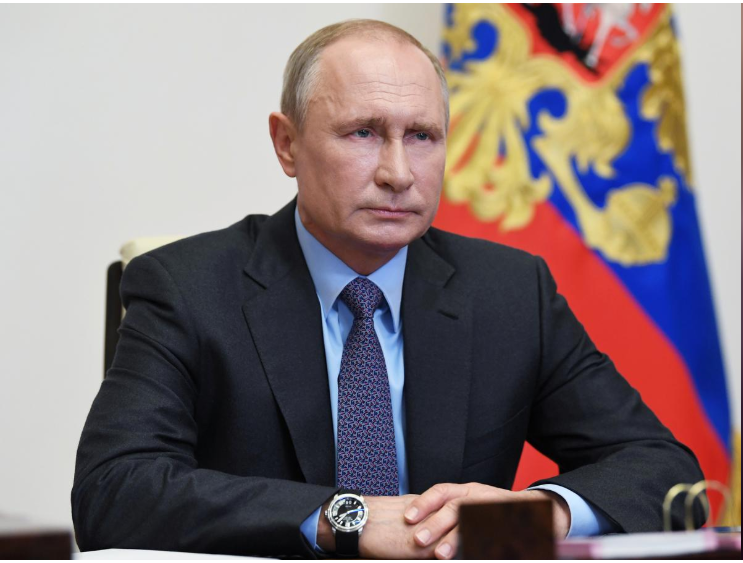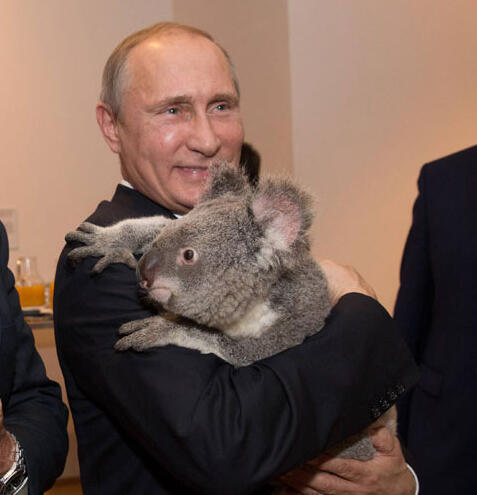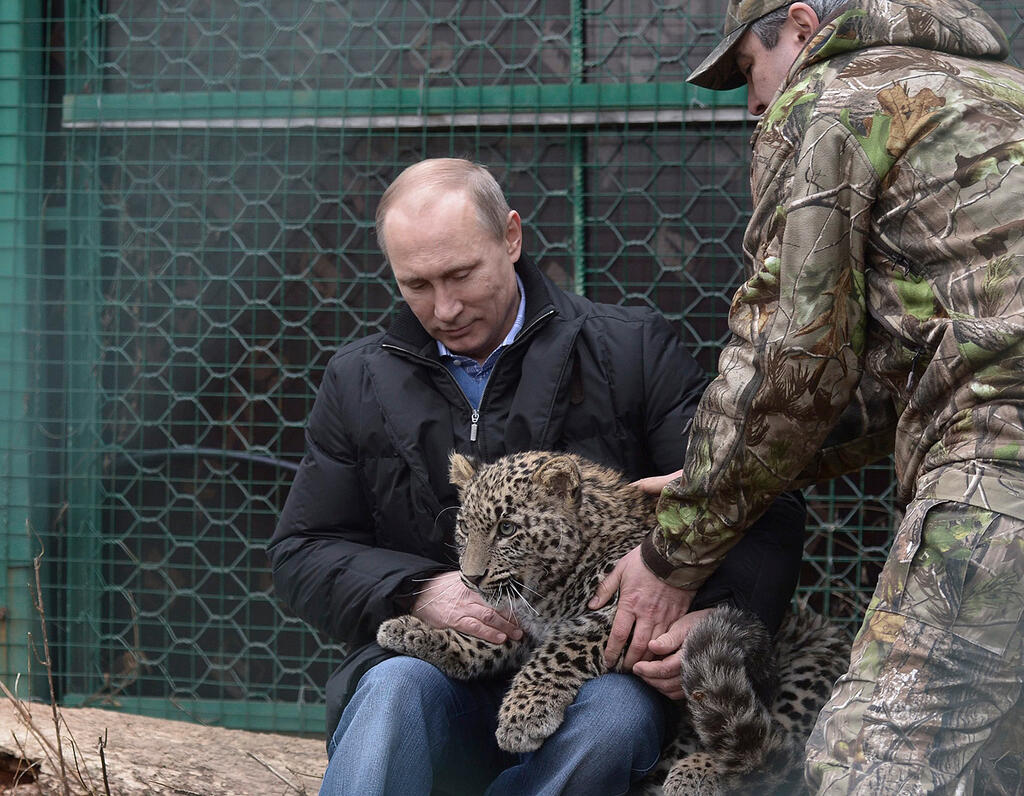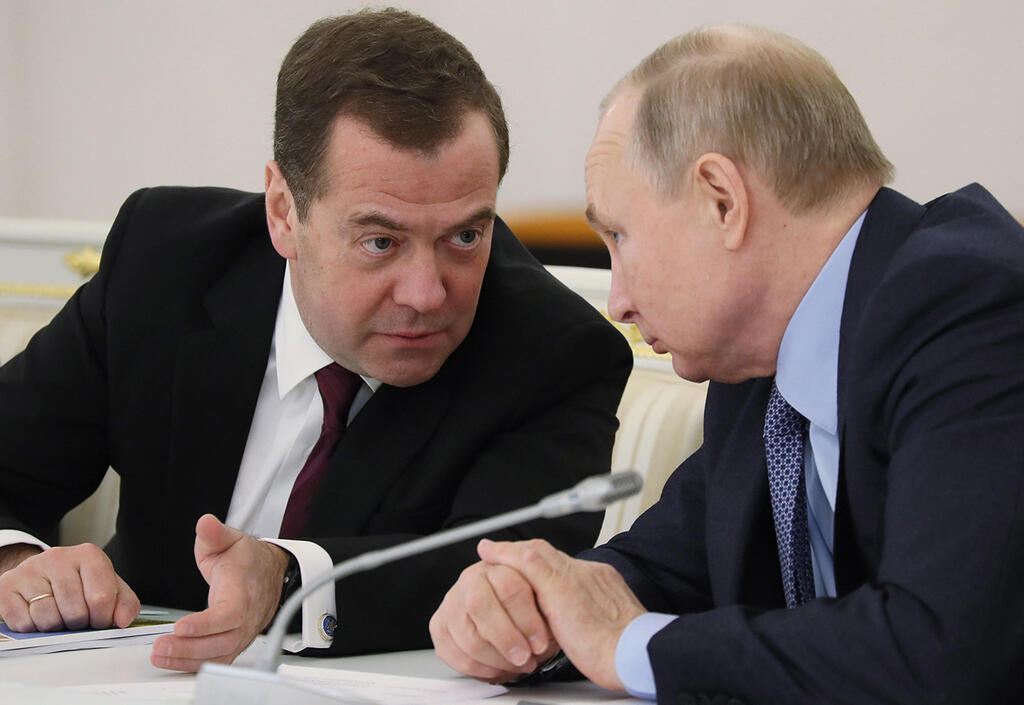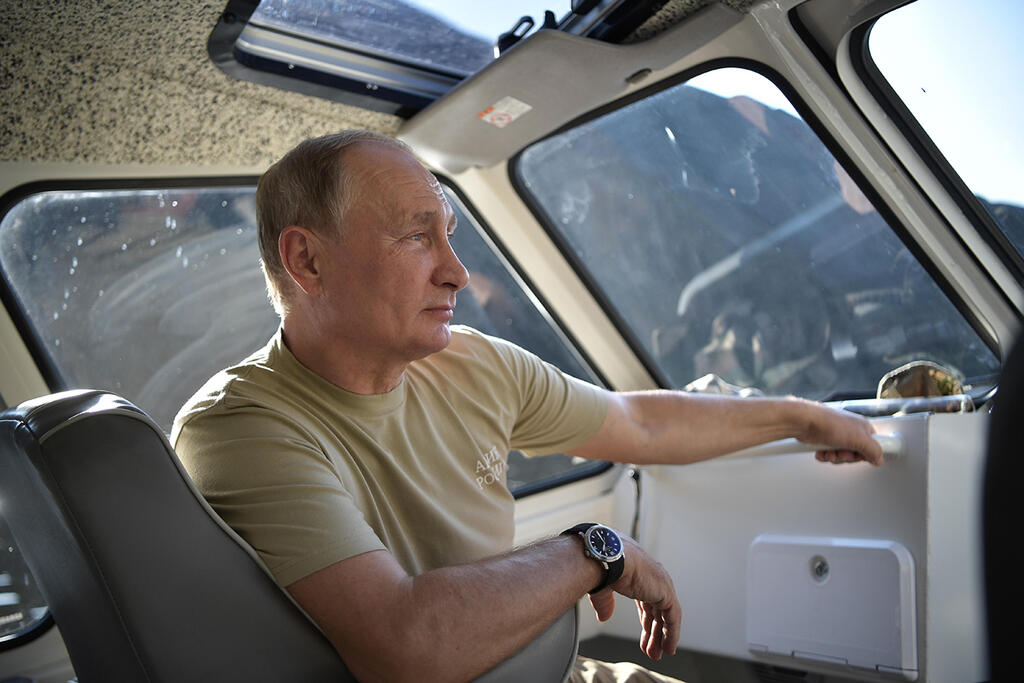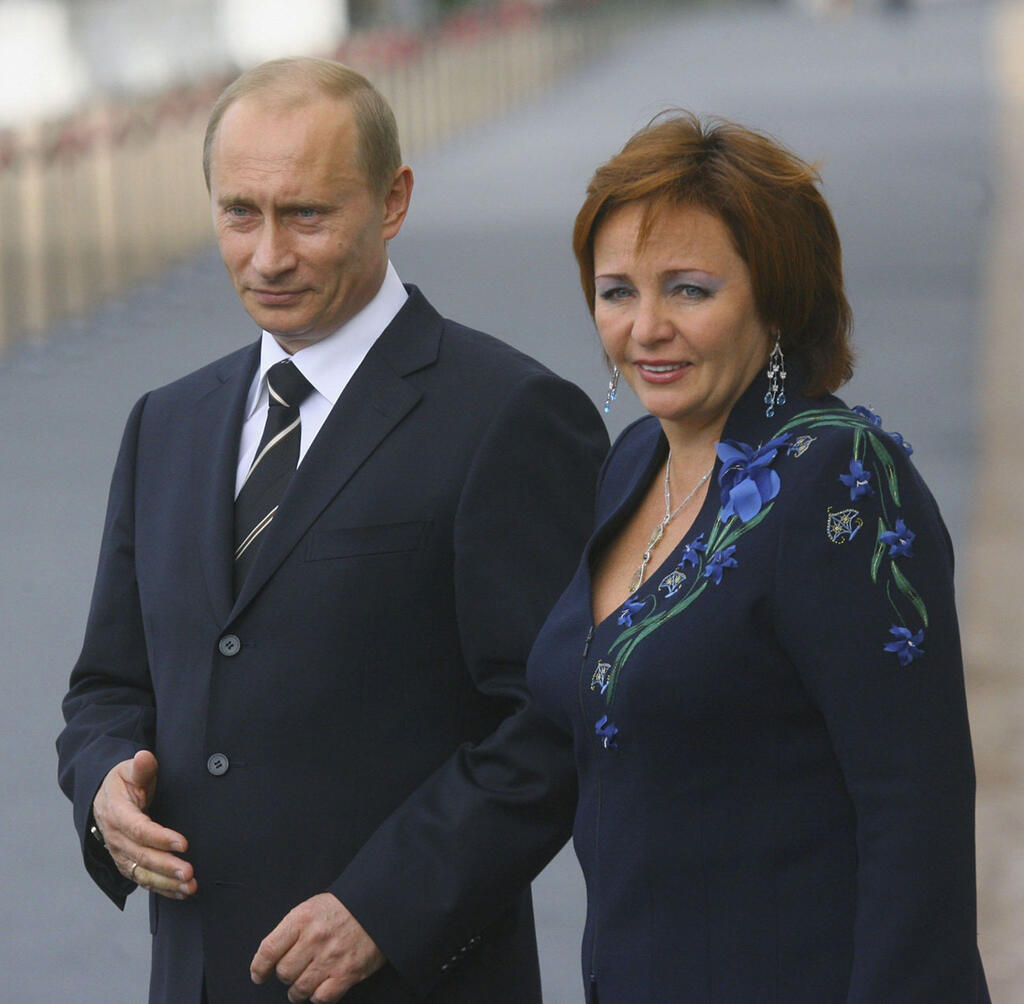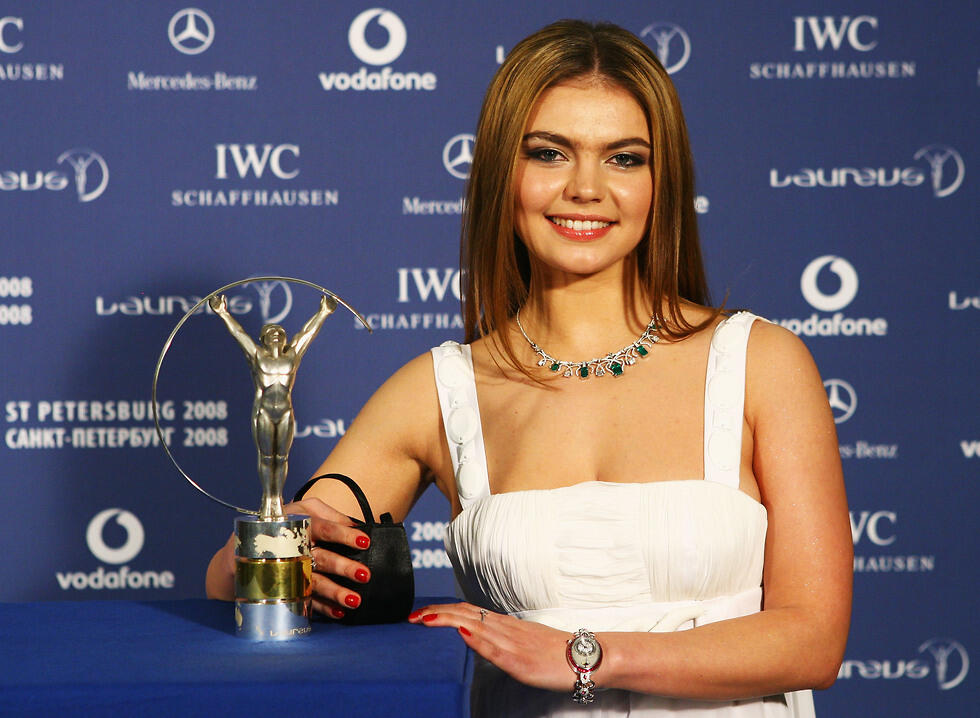Getting your Trinity Audio player ready...
Russian President Vladimir Putin is the most powerful, and maybe even richest, man in the world. How did he come to be who he is today? Not many were burdening themselves with this question until two weeks ago, when he launched a shocking invasion of Ukraine in the biggest ground war in Europe since World War II.
In order to answer that question, we must go all the way back to 1952 Leningrad (present day St. Petersburg), where he was born. His father was a communist, and his two older brothers died as infants. His dream as a child was to be a secret agent for the KGB, the main security agency for the Soviet Union.
"He was born post-World War II into a world with a very difficult socio-economic state," says Dr. Sagit Yehoshua, a criminologist from the Hebrew University and Reichmann University. "It was not an easy reality."
She says that Leningrad in the 50s felt like something out of an apocalyptic movie. "Kids would wander the streets and take out their aggression on their surroundings, and Putin applied that to sports. To this day he holds a black belt in Judo," says Dr. Yehoshua.
"When raised on communist culture and admiration of Joseph Stalin, there's no doubt that anti-social traits and narcissism would develop in childhood."
From a young age, Putin tried to decipher how he would achieve his dream of becoming a secret agent. He graduated from law school at the Leningrad State University, where he met his first wife.
During his studies, Putin joined the Communist Party and then went on to enlist to the KGB, where he served for 15 years, but was apparently never satisfied with his position and saw it as a personal failure.
When the Soviet Union fell, Putin saw it as a national catastrophe. "These experiences made him very sad," explains Dr. Yehoshua. "When he became president, he maneuvered the system in a way that would allow him to lead the country for a long time.
"When you're in a position for such a long time, you develop megalomania, narcissism, and lack of empathy. There's no doubt that today these traits are being expressed in a very significant way. The decisions he makes today are made from a stance where he can't seen the larger picture, because he looks only his successes and reality is very distorted."
Putin returned to Leningrad after the fall of the Soviet Union, and reached out to his teacher from law school - Anatoly Sobchak, then-mayor of St. Petersburg and author of the Russian Federation Constitution - who became his mentor.
After several positions in the Federal Security Service (FSB) - the main successor agency to the KGB - he became prime minister in 1999, and was appointed president later that year by then-President Boris Yeltsin, who resigned abruptly in 1999, citing health problems.
He went on to get elected for the next two terms, and due to legal limitations, couldn't run for a third time. He promoted Dmitry Medvedev as the favorable candidate to be his successor.
And indeed, in 2008, Medvedev was elected to be the next president, placing Putin in the position of prime minister yet again. Putin ran for president again in 2012, winning decisively, although that victory is was contested by opposition groups over lack of transparency. This exact same thing happened in 2018 elections, putting Putin in president's office for his fourth term.
"Putin doesn't believe in West-ness," says Dr. Yehoshua. "He grew up on communist values. He admires the tough Russian culture and that's where he wants Russia to stand. He understands that the West won't accept him or cooperate with him, and it's not from a desire of taking over the world, rather from a place of bringing things back to the way they were [before the fall of the USSR]."
According to Dr. Yehoshua, one of Putin's biggest weaknesses is his narcissism. "A narcissistic leader sees only his successes, so automatically he can't see the enemy's capabilities," she says. "He's not able to see the power that the enemy has and the harsh circumstances Russia faces. To him, military successes are what is keeping him in power right now. This is how many previous leaders fell.
"Putin is in a place where he can't correctly calculate the consequences of his actions and how much they're detrimental to Russia. Putin doesn't represent the Russian nation, he is the Russian nation," Dr. Yehoshua says.
"He won't stop until Ukraine isn't completely destroyed and subjected to his control. He wants total control, and anytime he can't have it, he won't accept it. The more the West pushes him to the corner, the more angry he'll get and act out against them."
Aside from his narcistic traits, Dr. Yehoshua claims that Putin has anti-social tendencies. "He likes to incite fear in people, he likes when people are subjugated," she says. "He wants everyone to do exactly as he says ... he has no problem using all means necessary to get what he wants."
When it comes to his personal life, Putin is a family man, an English and German speaker, has a black belt in Judo, practices wrestling, loves chess, and plays the guitar.
Putin was married for 30 years to Lyudmila Putina, with whom he has two daughters - 36-year-old Maria and 25-year-old Katerina. Lyudmila and her daughters prefer to live in privacy, and were virtually unknown to public until 2018.
There are rumors that Putin had an affair with Svetlana Krivonogikh, a cleaner who spontaneously became very wealthy. Allegedly, the two have a secret daughter. The Kremlin denies these rumors.
"There isn't much information about his family. This is an image of a distanced mysterious leader. Unreachable. He doesn't want to seem like 'one of us,' like everyone else, so he separates himself and his friends and family from others."
In 2013, Putin and his ex-wife announced they would be getting a divorce due to an alleged affair with Russian Olympic gymnast Alina Kabaeva. The two are rumored to have four children together.
"Rumors saw say he has an enormous fortress on a private island, where there is a copy of the Kremlin," Dr. Yehoshua says.
"We're talking about something very excessive, with pools and tons of wealth... it goes with his narcistic personality. He has no friends and he doesn't go out to any events. He's becoming more and more isolated with time, he has no friends and does not attend events.
8 View gallery
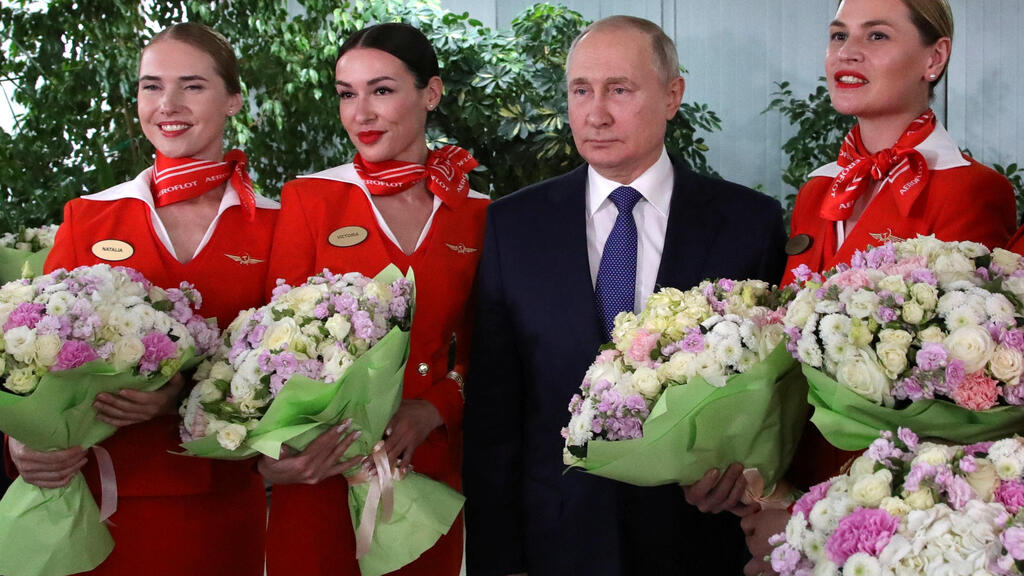

Putin meets Aeroflot flight attendants on March 8, amid Russia's war with Ukraine
(Photo: AP)
"People around him are not his friends, but those with whom he shares interests. He looks out for his needs and enjoys his wealth alone."
In 2007, Putin was named Time magazine's 'Person of the Year' and in 2013-2014, Forbes ranked him as the most powerful leader in the world.
In 2017 he was chosen by Time magazine as one of the 100 most influential people in the world. In July 2017, it was reported that Putin's fortune was estimated at around $200 billion.


